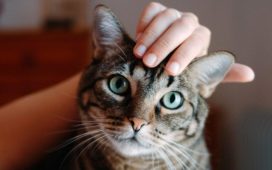The pandemic has underlined the degree to which humans can only develop and thrive in relation to other humans
“There’s no art to find the mind’s construction in the face,” says Duncan, about the duplicity of the first Thane of Cawdor, in Macbeth. Which on first glance has the authority of evidence – the king did not see the betrayal coming – but on further examination is patently untrue. Reading each other is one of the most complex and widespread of human achievements, even if our efforts don’t always succeed.
In fact, the way in which we perceive and respond to others very much shapes who we are. There is neuroscientific evidence that the earliest brain development occurs through the relationships a baby has with the people around it; the minute by minute testing of whether an adult will come when called, and whether or not their faces and actions tell the baby they are kind when they come, being laid down in the structure of the growing brain, and forming the basis of instincts that influence our interactions with others throughout our lives. This applies most intensely to primary carers, but also to peers and society – one of many reasons why it is so concerning to read reports that some children, accustomed to a combination of reduced social contact and masks, are arriving in early years settings having difficulty reading faces.













